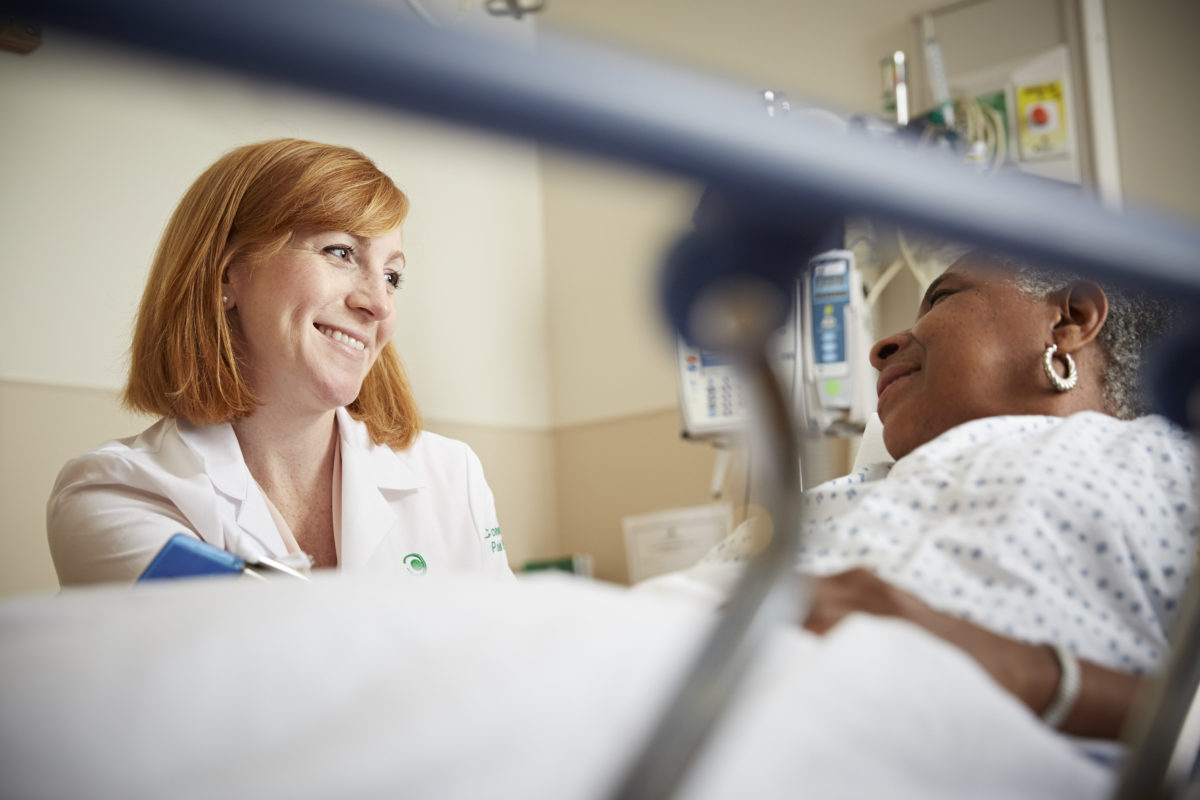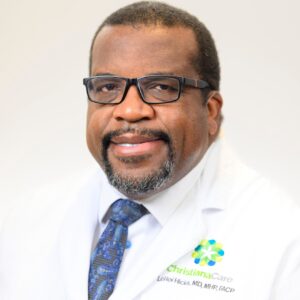It’s difficult for patients to rest and get well when they are suffering from severe pain. Christiana Care’s new Pain Consult Service provides care for hospital patients with complex cases that don’t respond to traditional pain management.
In May, a pilot program addressing acute and chronic pain was rolled out on medical and surgical floors at Christiana Hospital, and the program became available hospitalwide in August as part of the Neuroscience Service Line. Previously, it was part of a joint program with Pain and Palliative Care, which focuses on patients with terminal illnesses in Medicine.
Pain was first recognized as the “fifth vital sign” in the 1990s, noted Irina Phillips, M.D., the program’s medical director, and much attention was focused on the importance of treating patients’ pain. But medications used to treat pain sometimes contributed to new problems.
“In the past 15 years, there’s been a rapid rise in the number of prescribed opioids for pain,” Dr. Phillips said. “Unfortunately, we also have seen a rise in the abuse and misuse of opioids. We want to maximize the use of non-opioid medications so we can treat our patients’ pain in the safest and most effective way.”
Opioids are drugs such as morphine, codeine and oxycodone that act on the nervous system to relieve pain.
“We at Christiana Care are fortunate that senior leadership recognizes and supports the need to take a novel approach to pain management,” said Kert F. Anzilotti, M.D., MBA, chair of the Department of Radiology.

“Dr. Phillips and her team are developing a novel, population health level strategy for pain that will transform the care we provide our neighbors and allow us to more effectively address this ubiquitous issue in our community.”
Dr. Phillips consults with the care team to make recommendations on strategies for managing pain. Any medications are ordered by the patient’s attending physician.
Often, patients are forthcoming in sharing concerns about pain medications they were taking before they were hospitalized. Dr. Phillips also gains insights through searching the state’s controlled substance monitoring database, which includes records for prescriptions dating back to 2012.
“We have seen patients who have been on opioid medications for 30 years, and their pain is either the same or worse,” she said. “For heroin users, it can be especially difficult to treat their pain because their tolerance to opioids is so high. In both groups, we often have to use many strategies to treat their pain in the safest way possible.”
Alternative treatments include Tylenol and drugs used to treat neuropathic pain, such as gabapentin and pregabalin. Topical patches, muscle relaxers and nerve blocks with steroids also can provide relief. Patients can be referred for physical therapy, acupuncture, yoga and mindfulness training.
Antidepressants and coping mechanisms also can help patients to achieve optimal health.
“It is emotionally draining and isolating to be in constant pain,” Dr. Phillips said. “Often patients are depressed, and their depression contributes to their physical pain. Treating a patient’s mood disorder is critical to helping manage their chronic pain.”
Patients who were addicted to pain medications before they were hospitalized can be referred to Project Engage, a program in which patients with substance abuse problems are counseled and connected with resources while they are still in the hospital.
Currently the Pain Consult Service operates Monday through Friday at Christiana Hospital. Ultimately, the program will be expanded to serve outpatients with acute and chronic pain.
“The most important goal in pain management is restoring function,” she said. “Many patients will never be pain-free. We have to think about how they can best manage it. Can they go to the grocery store? Can they play with their grandchildren? We want to help them to be the best they can be.”



